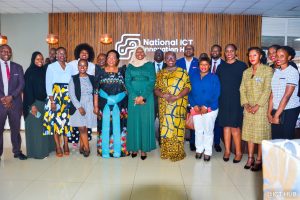BRIEFING TO THE MEDIA ON CABINET DECISIONS TAKEN DURING THE CABINET MEETING HELD ON MONDAY 25THMARCH, 2019 AT OFFICE OF THE PRESIDENT, SIR APOLLO KAGWA ROAD, KAMPALA
Cabinet sat on Monday March 25th, 2019 at Office of the President on Sir Apollo Kagwa Road, and;
- Cabinet approved the National Climate Change Bill, 2018 and the objectives of the bill include:
- To provide a legal frame work for enforcing climate change adaptation actions through which Uganda will be able to make adjustments in natural or human systems in response to actual or expected impacts of climate change in a manner that will reduce harm or exploit potential opportunities;
- To enable Uganda pursue its voluntary mitigation targets of reducing national greenhouse gas emissions.
- Approved the proposal by the Ministry of Works and Transport for the Government of Uganda to take over the Ownership of the East African Civil Aviation Academy (EACAA), Soroti. The takeover will enable Uganda to:
- Train commercial Pilots and Aircraft maintenance Engineers for the Uganda Peoples’ Defence Air Forces, Uganda Police Air Wing , the Executive (Presidential) Jet, commercial and general aviation as well as feeding into the newly revived Uganda Airline;
- Maximize the benefits from investments made by Government of Uganda at EACAA since 1977;
- Save the country colossal sums of foreign exchange which would be used for training pilots and Aircrafts Maintenance Engineers abroad/overseas;
- Strengthen the Civil Aviation Authority (CAA) as well as promote Uganda’s image and credibility as a Centre of excellence in the aviation industry.
- Approved the transformation of the Presidential Initiative on Banana Industrial Development Project (PIBID) into the Banana Industrial Research and Development Centre (BIRDC) for industrial application as a successor body with a legal mandate as detailed in the BIRDC’s StrategicPlan for FY 2019/2020 to 2023/2024. The transformation will:
- Provide Leadership in Research and Development over the banana theme;
- Generate competitive agribusiness models for rural transformation and commercialization;
- Unpackage and transfer appropriate technologies to entrepreneurs across the sector.
- Approved the Guidelines for the Negotiation of loan and grants by the Government which will provide for:
- Secure financing on affordable terms;
- Ensure that Loans and Grants are negotiated and closed with affordable rates and better terms and conditions;
- Avoid unnecessary risk to Government and to resolve foreseen implementation related issues.
- Approved the National Research and Innovation Program framework and its objectives include:
- To promote science, research and Innovation in Uganda;
- To promote the implementation of innovative projects with the aim of facilitation the realization of new or improved products, processes or services designed to raise the economic efficiency;
- To Improve the innovation potential and technological level of enterprises;
- To increase private investment and enhance the dynamics of innovation processes in Uganda.
- Noted the performance of the Youth Livelihood Program for the FY 2013/14 and FY 2017/2018 and also Approved the performance improvement measures to be incorporated in the Youth livelihood program and these include among others:
- Reduce the minimum group size to five(5) youth from ten(10) to enhance group cohesion;
- Allow youth who may not be from the same village, but have projects of common interest to form groups and access funding ,if they live within the same parish/ward;
- Disburse funds directly to group accounts (from the Ministry Project Account in Bank of Uganda to Youth Interest Groups Accounts).
- Maintain only group Members as signatories to group accounts(Chairperson, Secretary and Treasurer);
- Increase the Resource Allocation for Institutional Support to 20% from the current 10% to provide sufficient resources for training , technical support and supervision of groups;
- Integrate the use of technology through developing ICT platforms for monitoring project implementation as well as Mobile Money for easing the repayment process especially for hard to reach areas.
- Promote local content reservation schemes for the youth in public procurement at local and National level.

